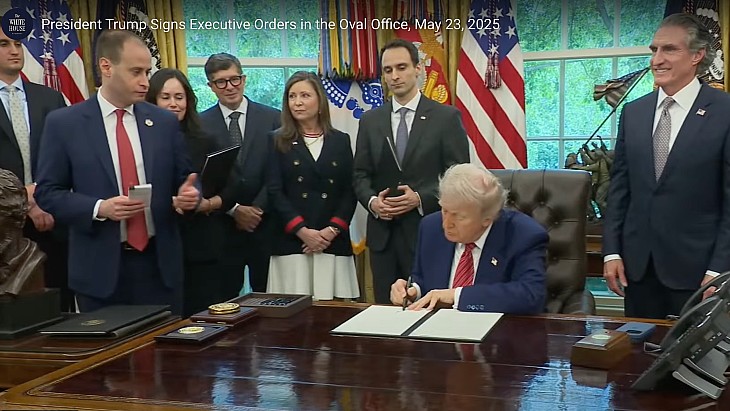German plants getting through their allowance
Germany's nuclear power plants have between them used up over half the generation allocated to them before they must close under the country's Atomic Energy Act. Meanwhile, an attempt to transfer allowances between plants has been refused by regulators.
Germany's nuclear power plants have between them used up over half the generation allocated to them before they must close under the country's Atomic Energy Act. Meanwhile, an attempt to transfer allowances between plants has been refused by regulators.
According to 2008 data published by the German Federal Office for Radiation Protection (BfS), the country's 17 operating reactors still have available to them a total of about 1241 TWh out of the 2623 TWh allocated to them under a 2002 law gearing the country up for a nuclear phaseout. This equates to an operating life of roughly 32 years per plant, and at the time was seen as a pragmatic compromise limiting politically motivated interference after a decision by the coalition government to phase out nuclear energy.
Operators can apply to transfer generation time from lesser to more efficient plants. Two reactors have already been shut down early, and although some generation time has been passed from older to newer plants for economic reasons, the agreement would eventually see all reactors shut down by 2015 regardless of whether they have reached the end of their operational lives.
Nevertheless, Germany relies on nuclear power for about a third of its electricity generation, and many are now calling for nuclear to play an ongoing part in the country's energy policy not least to help it meet greenhouse gas reduction commitments. The debate is sure to feature in the run-up to the federal election, set for September.
The BfS announcements came only days after the German Federal Administrative Court ruled as unlawful the transfer of generating allowances from the decommissioned Muelheim-Kaerlich plant to Brunsbuettel and Biblis A, both plants that are approaching their generating limit. Muelheim-Kaerlich operated for only a short time in the 1980s and therefore most of its allowance remains unused. However, when transfer of electricity production rights is from a newer to an older plant - as is the case here - federal approval is required. According to the Federal Administrative Court, Biblis A and Brunsbuettel are not listed among seven named plants in the German Atomic Energy Act to which Muelheim-Kaerlich's capacity can legally be transferred.
With elections approaching, German nuclear operators are working to ensure that their plants are not forced to shut down before there is a chance for the phaseout policy to be turned around. Biblis owner RWE Power and Brunsbuettel's majority owner Vattenfall are both pursuing other requests for transfers to the two plants.
According to Vattenfall, Brunsbuettel's remaining allocation of 11 billion kilowatt hours would allow only two and a half years of operation. RWE said that it was still pursuing an application for the transfer of generating capacity from the Emsland nuclear power plant to Biblis A, which is currently before the Hess State Administrative Court. "We take the view that our nuclear power option should be kept open," said Gerd Jaeger, of RWE Power's executive board.











